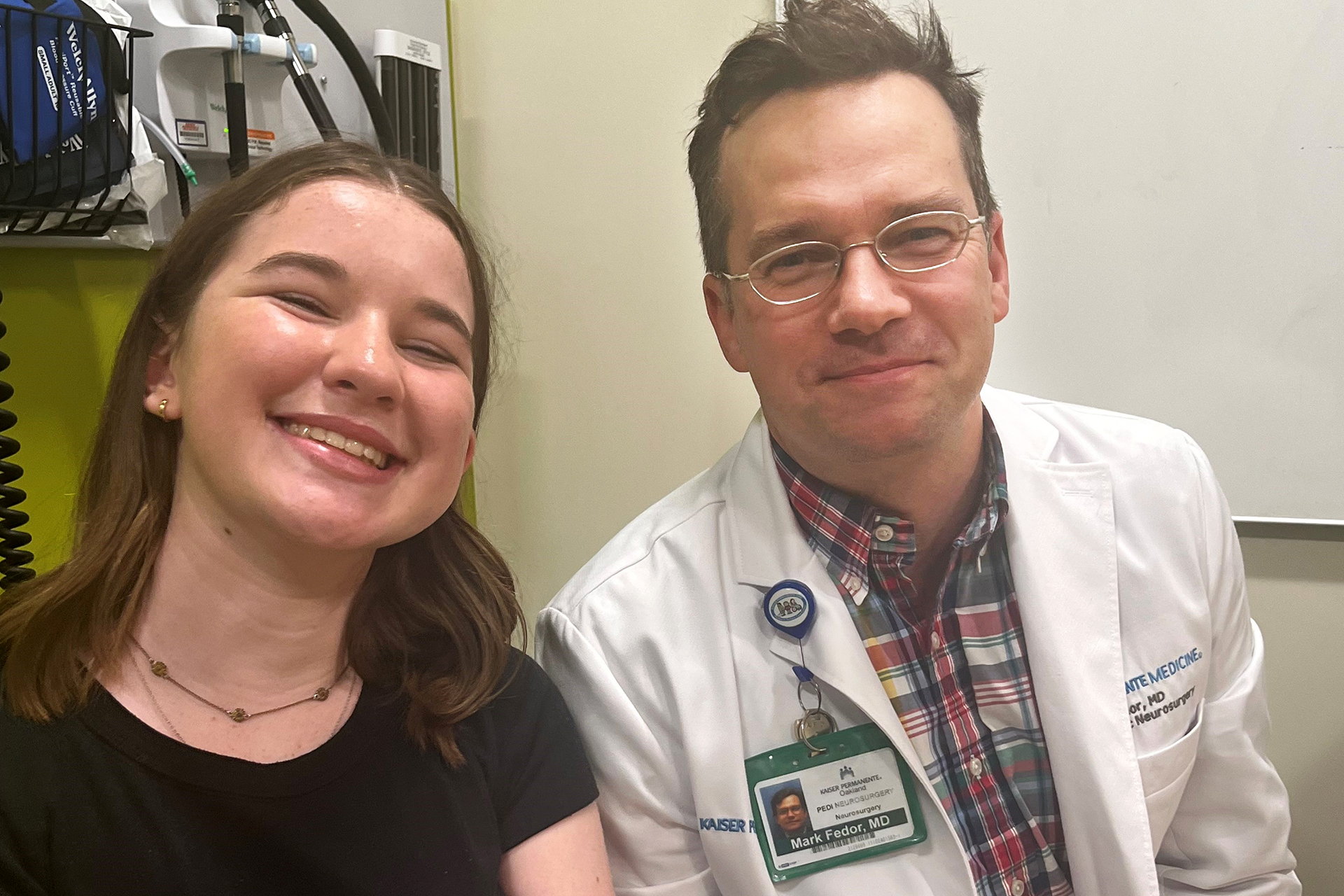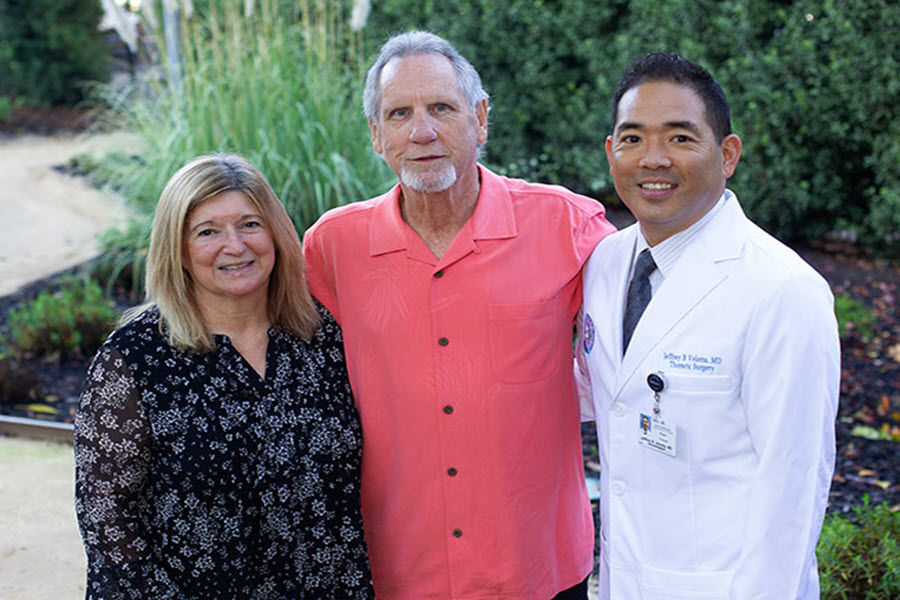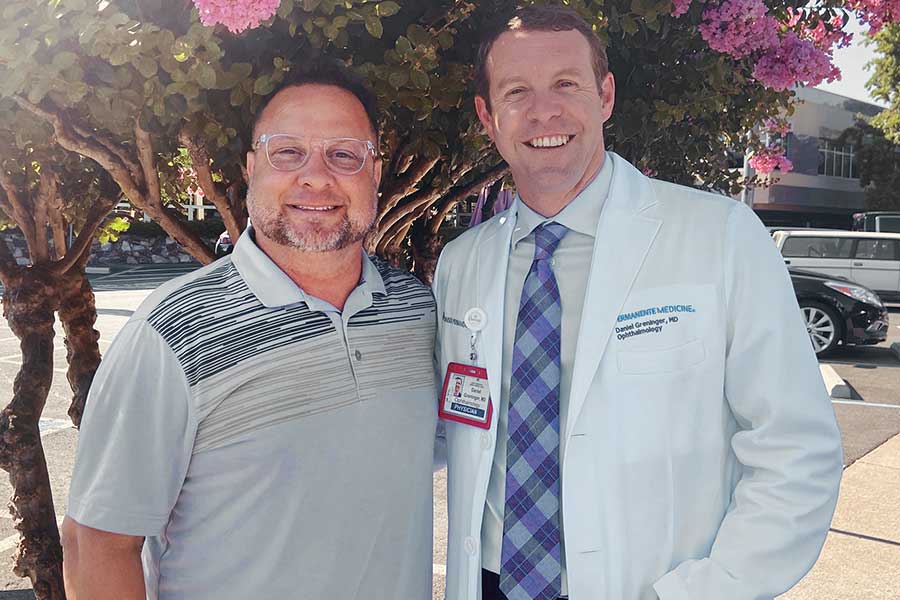Oakland, CA | January 25, 2017
Something strange happened after Alex Henry took an awkward step in her bedroom, lost her balance, and accidentally thrust her leg into the doorjamb — there was no bruise or laceration, yet the 12-year-old Sacramento girl was in excruciating pain.
“She came out of the room and had big ol’ tears, and if you know Alex, that’s not common for her,” recalled her father, Doug.
Alex didn’t know it at the time, but the unusual pain she suffered that day in November 2014 was the first of several signs that pointed to a rare cancer in her leg, which would permanently alter her life and appearance.
Fast Diagnosis, Coordinated Care
On the day Alex bumped into the doorjamb, her pain went away in 5 minutes, but about 2 months later, her mother, Roxanne, noticed a lump on the same part of the leg. She took Alex to her lifelong pediatrician Thomas Fitzpatrick, MD, at Kaiser Permanente Point West Medical Offices in Sacramento. He ordered X-rays.
Four hours later, Dr. Fitzpatrick called Alex’s family to say that something didn’t look right. The next morning, the family met with an oncologist who suspected osteosarcoma and ordered a biopsy on the bone tumor 2 days later. Chemotherapy started several days after that.
Doug described himself as “scared to death” by the rapid pace of medical attention. “In hindsight,” he said, “it was a true blessing having Kaiser react so fast and moving in that sort of direction.”
By then, several specialists were immersed in Alex’s care, including Kent Jolly, MD, a pediatric hematologist-oncologist at Kaiser Permanente Roseville Medical Center’s Women and Children’s Center; and Andrew Fang, MD, an orthopedic surgeon at Kaiser Permanente South San Francisco Medical Center.
When cancer was discovered on other parts of Alex’s leg, her care team offered three options: a knee replacement, which would have to be replaced repeatedly throughout Alex’s life; a one-time treatment, amputation, and the end of the cancer; or a wait and see.
Doctors needed a decision within a week.
The family filled its game room walls with large flip-chart sheets of paper with bullet points to describe pros and cons of each possibility.
“Being 12, it was a little nerve-wracking at first, but then once I got all the info on each choice, I knew I had to do the amputation because that would allow me to be more active than the other options,” Alex said. “I am very happy with my decision and have no regrets.”
An ‘Amazing’ Experience
What Alex and her family went through was undoubtedly devastating. But Doug repeatedly uses the word “amazing” to describe the experience — from the initial appointment where cancer was suspected, to the physical therapy sessions.
“Alexandra’s case benefitted from the extraordinary degree of coordination and integration available at Kaiser Permanente in Roseville and Sacramento, which are accredited as Comprehensive Community Cancer Programs,” said Dr. Jolly. “All of the radiologists and surgeons reviewed her case together; the pharmacy met with the physicians on a daily basis during therapy; the laboratory, pharmacy, and radiology integration allowed her care to be optimized in a way that’s uncommon in hospitals outside Kaiser Permanente.”
Other caregivers included certified chemotherapy nurses, child life specialist, social workers, and physical therapists.
Alex, now 14, continues to see her providers for quarterly X-rays, CT scans, and physical exams to ensure her ongoing wellness. “Alexandra is almost certainly cured because she’s more than one year off treatment without recurrence,” Dr. Jolly added.
Today she wears a prosthetic leg and has participated in a triathlon. She’s competing on her appaloosa, Kiowa, and is aiming for the high-school swim team. One day she aspires to compete in international Paralympic Games.
This story originally appeared on Look Inside KP – Northern California






